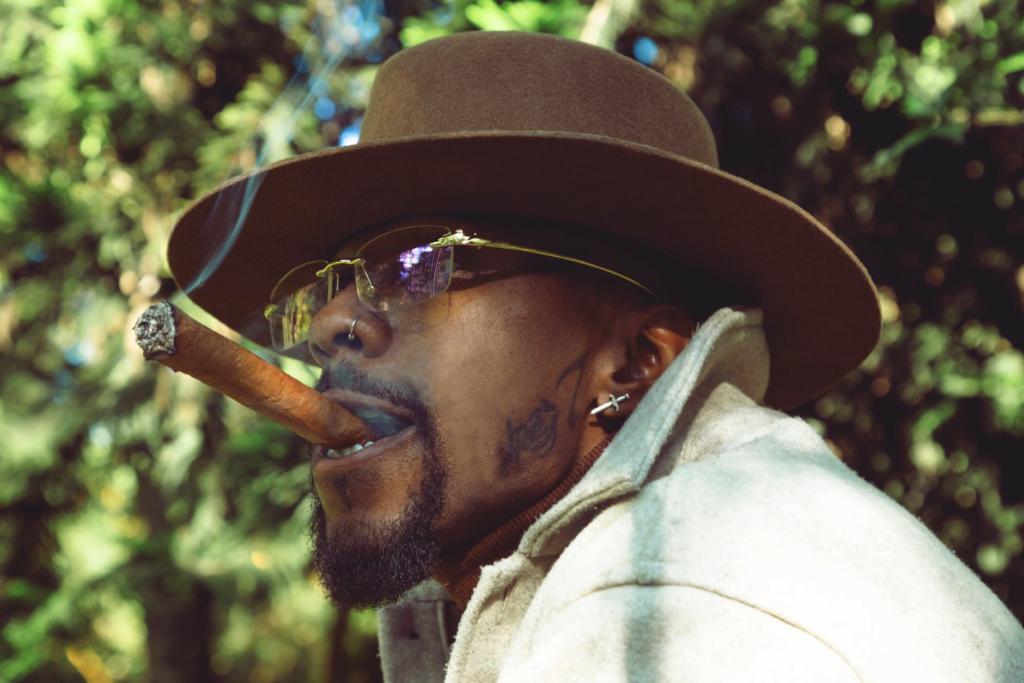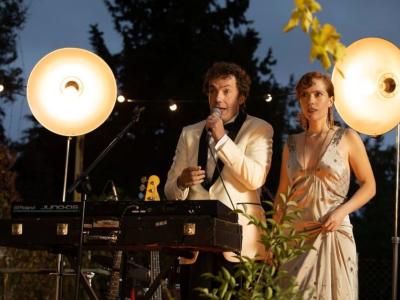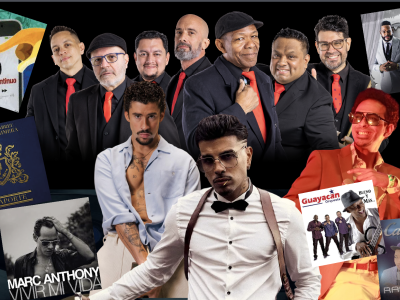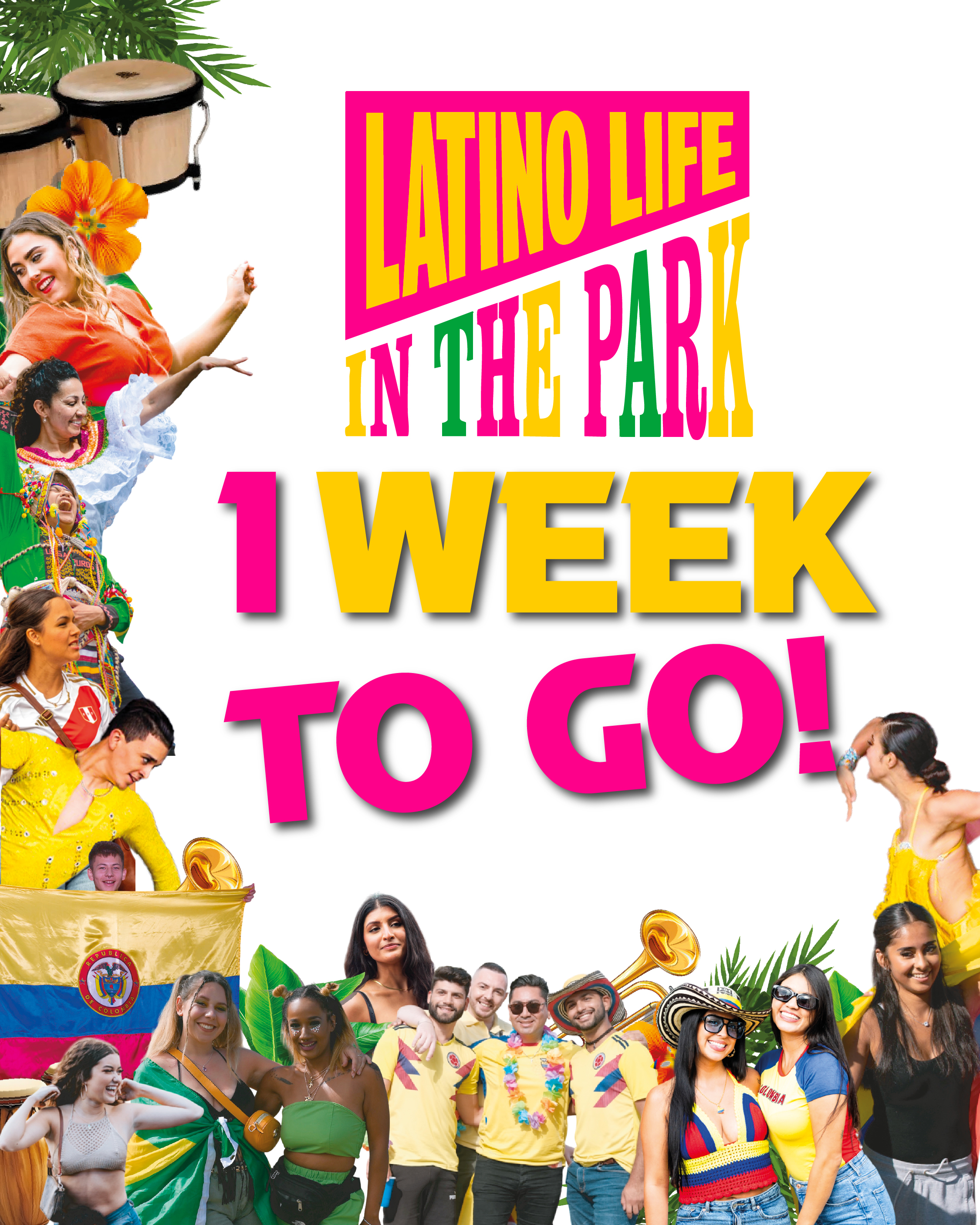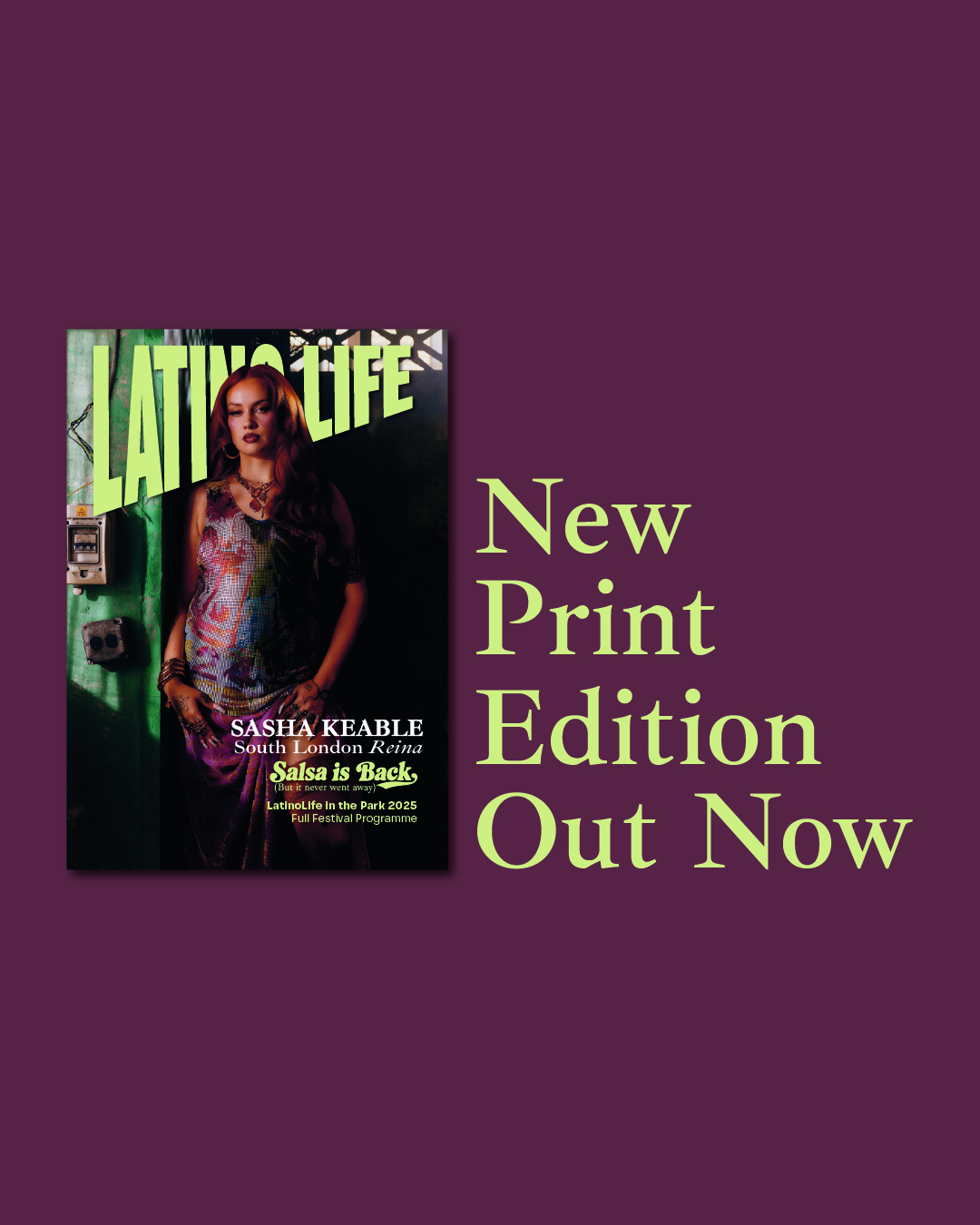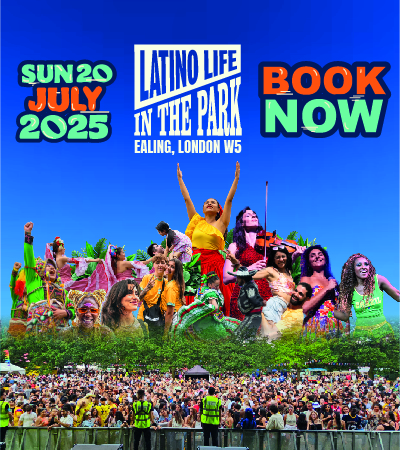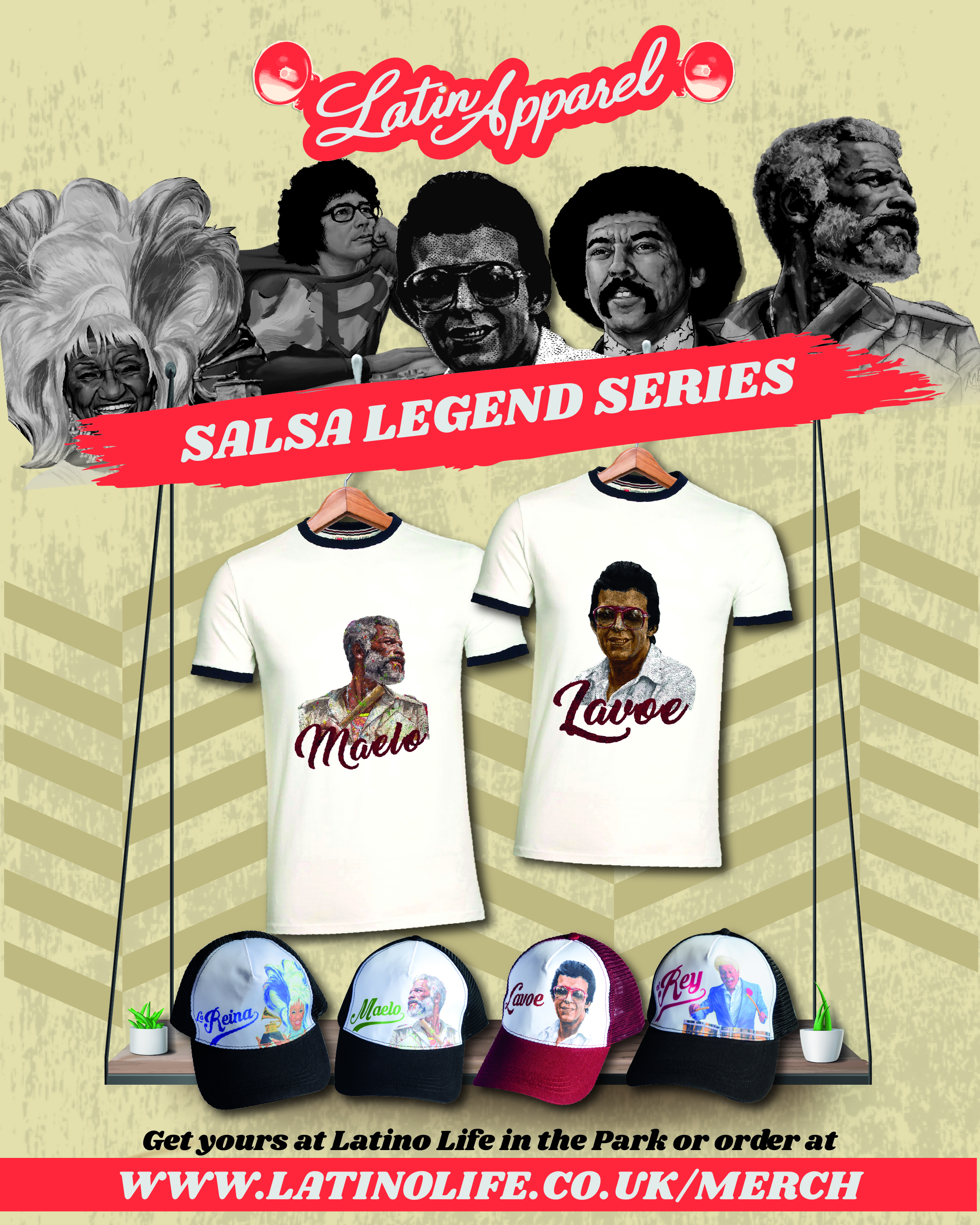Jose Luis Seijas: I’ve been following your music for many years, and it’s a real pleasure to talk to you. For those less familiar with you, tell us more about how you got started in Hip Hop?
Apache: I started in 1999. I was a boy, a dancer and a friend who lived closed by, used to play me music from the States, such as Wu Tan Clan, Dr Dre, Eminen, Nas..Jay Z.. and one day he took me to Los Proceres Square, a place where everyone who had anything to do with hip hop would gather every Saturday. When I saw that it was madness!!! All the crews were there, week in week out. I met La Corte and Bosta Brains there. (La Corte pioneer crew of Venezuelan Hip Hop and one of its members). I also met "Rojo" from "4to Poder" (another seminal Venezuelan crew) and he saw me dancing and asked me if I could dance for them for a show.
From then on I started to rehearse my rhymes with the music my neighbours would give me, the instrumentals and one day Rojo heard me doing a freestyle and he invited me to meet the rest of his crew, so I could show them that apart from a dancers I could also spit..and that was it, we met, they saw me dancing and they liked what I did and then Rojo asked me to do some bars and agreed to let me join as a dancer and a rapper. So that very first show I danced and also would grab the mike and do a couple of bars here and there. By 2001 we were already travelling to Cuba as guests in the "Hip Hop Habana" Festival, then we reached Europe, started recorded albums with them and by 2003 I was already doing my solo project.
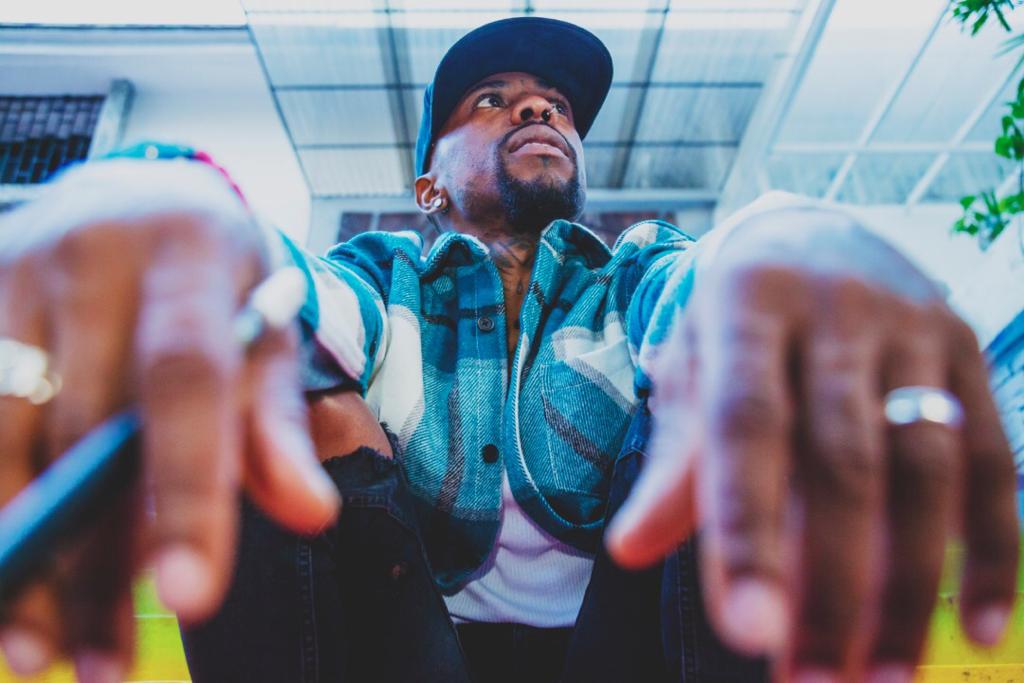
JLS: You went to have a very successful commercial career, developed and matured to the point of working with Canserbero… and now you are making a new start from a new country...
Apache: Well yeah, in the end we just had to leave. We make a living out of music and it got to the point where there were no events or any kind of music activities happening. Then we got a proposal to come to Medellin and we took it and things have been going well here. We now have a new base here and people listen to our music a lot here, surprisingly when we arrived, we had a decent fan based and that helped.
JLS: It seems that Colombia is a very open country when it comes to foreign music; Nicky Jam relaunched his career there too…
Apache: Yes and also we find Medellin very similar to Caracas and that helped us settle here.
JLS: You and 4to Poder were pioneers in Venezuela. There was not much of a Hip Hop culture before your crew, La Corte and a few others...
AP: Ha ha, it was a surprise to my mum, she was aghast. I got a Diploma in IT and she did not understand what I was doing and would be, like "well you dance, you hang out but what are you doing with your life?" and I would argue back saying that I wanted to pursue a musical career...when she saw us in our first TV ad she was happy. With 4to Poder there was a very special connection. They came from the media University and they were very savvy. We got our own radio program very quickly and suddenly we were doing a lot of TV and travelling. When we started touring we matured very quickly.
Our trip to Cuba in 2001 was a turning point. It really made us rethink what we were doing. It wasn't massive but people were there to listen. We have a few hundred people there arms crossed, not even moving their heads, but just listening to what you brought ! It was an eye opener for us, so as soon as we got back to Venezuela we started to reshape the whole project. We had an album ready for release and we shelved it and started everything from scratch and then we returned to Cuba and the experience was different, we were a better crew and we were accepted much more. We had some homies there as well, Anonimo Consejo and some other people. Those trips were a big school for us and we applied what we learnt to the music we were making. The people behind the scenes were really good as well. Even MKC who was part of the original crew as our DJ and is now the DJ of Maluma!
We were all youngsters, vibing to the same things…that helped us get along well and we became inseparable and we created a very good energy between us. Even when they saw me develop my solo project , they were chilled and supportive and we continued. Then we started to get places we never thought we could, doing ads for big drinks and showcasing in sporting events and suddenly soap operas...when my mum saw my music in a soup opera she finally relaxed (laughs) and she realised we were serious about our project! She saw me grinding, singing my tunes to her so she got into the whole movement!
JLS: Then you started you own project…
AP: I was doing my solo project at the same time, it was about 3 years while I was doing both. Everyone started to find their own path, develop their own things. I kept my focus and released the album "Lo Necesario, after that "Apa y Can", "Original Combination then Oro Nunca" and then while being here in Colombia, we had already done some work with singles and collaborations and MCTe (his producer) was getting jittery as fans were asking for new music and it had been 3 years since I released a full length album. McTe and I started working on the album in 2019 so by the start of 2020 we had it pretty much ready. We started releasing some singles and then Covid 19 got in the way, so we decided to make extra music, featuring Gera MX from Mexico, AL2 El Aldeano from Cuba, the "Tribute to Venezuelan Hip Hop" with La Corte and special guest Lil Suppa. Also we worked on the "Tribute to Can" (Cancerbero, who died in 2015) with a beat by Sanabria a Venezuelan producer based in LA.
We were happy with the result and so only now decided to release the album. I think we achieved what we wanted to achieve; it feels like a Utica trip from start to end, it is our manifesto as a conceptual album. The result is this work of love called "Apache"
JLS: Your 7th album makes your discography one of the most solid when it comes to Venezuelan rap. But it seems to be the closing of a cycle, returning to the origins of your Hip Hop journey in Caracas 20+ years ago. Before you were looking outwards with some great collaborations, say with Lapiz Conciente, but here with "Apache" it seems that you’ve gone back to the origins of your career, making it like the closing of a long musical journey...has being outside Venezuela change your perspective?
AP: It’s a mix of things, the time I have spent here, the time that I have spent without releasing that sound that my career is based on. My producer McTematico has been key in this process and my fan base has been asking for an album like this for a long time, they have been on the case chasing me for an album like "Afinando" or "Apa y Can" and the circumstances were given to do it, about 20 years of career, kind of here it is people don't get desperate! (laughs) this is what we have been working on and this album was made with loads of love.
JLS: I really liked it to be honest, the tribute to did to la Corte sounds great and the fact that your brought Bosta and DJ 13 who are considered the Godfathers of Venezuelan Hip Hop, was a nice touch.
AP: Well it was almost like payback, as they invited me to participate in their albums twice and after all this time it is me who is inviting them to jump on a track. That kid who they squeezed in their tunes grew up and now that kid is bringing them to participate in their music, that was very cool.
JLS: Going back in time a bit, a subject that always seems to be close to you, Canserbero, the legendary and now almost mythical figure of Latin Hip Hop, who while alive had a very strong connection with his fans and now that audience has become massive. I understand you became not just collaborators but also close friends ...
AP: It was actually Lil Suppa who really was close to Can, who made our collaboration happen. I started listening to Can's music and I got well impressed with his lyrics, and at that time Can had also listen to my music, there was already a mutual respect. We saw each other in an event they had in San Antonio (a suburb near Caracas) and that is when we finally managed to get the connection going and decided we had to do something together.
A year went by and there was a big event in Caracas called Rap Latino Fest and after his show we were in his changing room and he told me he had an instrumental and ‘why don't you listen to it as I’m going to be in town for a few days and we can sit down and get down to business’
He sent the instrumental right away and we set up a meeting for the day after. I remember getting him on a "Moto Taxi" (Venezuelan infamous motorbike taxis) to get to my hood Las Minas and he arrived rather distressed (laughs) asking me why those bikers were so crazy! So we started to work on the balcony and he showed me his idea for the track, and after about 1 hour we had the first tune, "Ready" which was the beginning of the album "Apa y Can", and I remember that we were all hyped up about the beat, we really liked it.
We had the song pretty much done, and he told me, ‘my G I want to keep writing,’ and he showed me some stuff he was working on and it was like I got something similar, check it out and we needed up 2 songs in one beat! And we decided that it was going to get released like that, a long track, about 8-9 minutes. We showed it to Kpu (Venezuelan producer who was close to Canserbero) and he loved it, so he gave us a bank of instrumentals and told he to get on with it and let him know when we were done. We went for a drive around Caracas listening to the instrumentals Kpu gave us and we liked all of them and we decided to set up camp at "La Biblioteca", Kpu's studio where he had worked most of Can's albums and in about 15-16 days we had it ready.
There was a hunger that we had accumulated for a while for this project. We had a very beautiful experience working with him, it was very nice reciprocity. A very easy going dude, very humble, chilled and with a great sense of humour! He was always making us laugh with his whatever crazy thing that would come to his mind. He was always sharping his rapping skills. He introduced me to deeper readings, while we were at the studio, I used to read but not as much and he kinda pushed me to read more, I took him to a more spiritual side with yoga and all the breathing exercises before singing or going on stage. It was a very beautiful, a very organic relationship, nobody really pushed it and when we realised we were already touring the whole of Latin American promoting that album. Total madness.
JLS: What did you take away from that experience with Canserbero?
Apache: The beautiful experience, very special, all the learnings! And that is his legacy. When the tragedy happened, we decided, me and my team, that every time we would go and play abroad we would include his songs, like a space for him, so every show we do there is a homage to him included.
In this album we decided to go back to that original rap sound, and we made this song as a tribute, where I wanted to do 2 songs in one, also a reference to that first song we did together which also opened that album. So I wanted to close this album in that way, so we made "Danza Hardcore" which starts kinda dark and then it goes more into a hype, and that is what more or less we were like, he had that darker mood in his music, while I’m more energetic, and that was probably why our collaborations were so catchy, the combination of both styles and why people really engaged with our project.
LL: You are not in venezuela anymore. As an immigrant, you you don't have the home advantage any more, the creative process as an immigrant is totally different!
LL: Imagine 3 years to release al album (laughs), 3 years here grinding, 3 years to learn and understand the local culture, creating a network, collaborating with other rappers and crews, attending festivals, doing concerts, my manager Carlos Carrillo has done a fantastic job at completing this puzzle. I was lucky that I was known in the Hip Hop circles and that helped the process of establishing a base here. We got lucky last year that a film director called Juan David Restrepo, picked us to be in his new film about immigrants called "Migrantes mi Patria Muda" . Me and my wife are the main characters, and a lil 8 years old girl. We are about to finish the last takes and by the middle of this year it will be released. I really felt identified with this film! All that kinda finished that puzzle. I had the chance to unleash all those things you are talking about, the impact of being an immigrant, I really felt close to the storyline and it has helped us as well to finally feel at home.
JLS: A recurrent theme in your rapping is your blackness, you don’t often hear Venezuelan music reflect about race. Tell us a bit more about that (while I show him my baseball cap with a picture of Ismael Rivera, a singer he mentioned in his music)
AP: OF COURSE (when he sees my cap)!! I grew up listening to salsa from my dad and Tambores from m mum. I’m the product of 2 different black people, my mum from the south of Maracaibo lake, where the is concentrations of black people ...San Jose, Bobure and my dad is the opposite, from Barlovento, in the Caribbean coast, so imagine those 2 negritudes at work! I grew up with that flavour. Since childhood I was taught that respect for my black heritage, our traditions. Every time I am able to bring that to the front, I do it. Here in Colombia there is a lot of black heritage too, El Choco, San Andres, their own black culture. Here in Medellin I have met lots of black Colombians who tell me about their backgrounds, for example the homies of Chcc Quib Town, they told me their backgrounds and here there seems to be a lot of respect for their own black culture, there is even TV channels dedicated to some of those areas. They celebrate their own blackness here and that had been lost in Venezuela, but here I feel well at home regarding that as they take it very seriously and for me that is my race, my culture, my tradition and I will always try to represent well.
JLS: So now venezuela is going through arguably their biggest crisis in history, and still you have people making music under those circumstances. In the urban world, you have a new wave of rappers doing Trap, rappers who pretty much grew up listening to your music, how do you feel about that whole situation?
APACHE: In terms of seeing a new breed of talent who I hope I helped inspire, is very gratifying. The road that we opened for future generations to walk, ai at the moment not very busy, there isn't as many as I would like but the ones making music under this circumstances are doing well. They are doing what they can, hustling their way in, grinding. Despite the situation and the uphill battle they are trying to survive by making music. That is very very pleasing. From here be support, we are in touch with crews from there and try to collaborate, but that hunger that comes from being somehow prisoner and not been able to go on tour or having the resources to make better productions, that hungers is what makes them active, on the case being productive. I’m very proud of all those homies that keep producing a lot with the little they have. For example the homie Willie DeVille, El Dojo crew who are helping push new talent. Recently there was the case of a young kid, tiny kid who does freestyling called Emblema. Residents (from Calle 13) heard him and now has it under his wing. They are having that kind of luck because they have so little resources that in order to shine they give it all! As long as that creative energy is flowing , despite the adversities, eventually that will blow again.
JLS: so to finalise tell us about 2021, what happening with you and your projects, apart from you getting into Hollywood (laughs)
AP: (laughs) well part from that we are releasing a new visual most probably in January, for the song "Zen", which is a tune about nature, where my lil gist is the protagonist of the video, trying to reach from lil kids to older people. Also we will be touring and doing a couple of featuring and we will be also dropping an album ,a compilation with the most important tunes of my career, celebrating my 20th anniversary in the industry, that should come out in February. So the engine is already working full steam for 2021!
Apache album "Apache" is out now
https://open.spotify.com/album/15UkTGRL6Sd2gZRWuRRpp7?si=LaRugESuS0y1C1…


